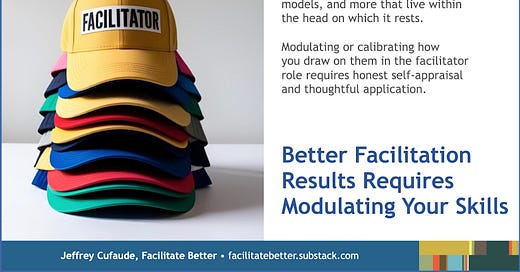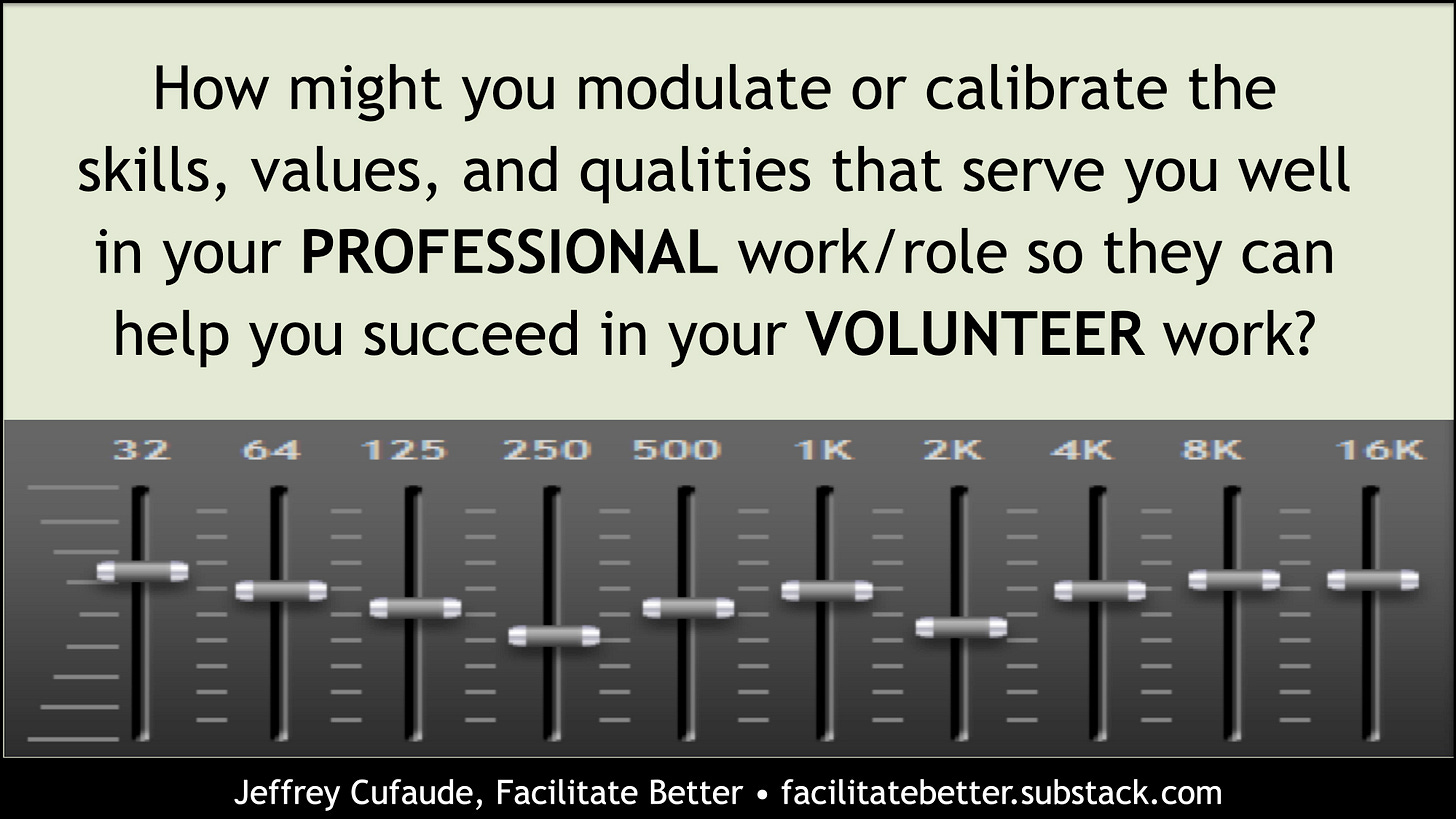Better Facilitation Results Requires Modulating Your Skills (Facilitation Friday #69)
What serves you well in some roles won't always transfer "as is" to facilitation efforts.
People wear more than one hat. The beliefs, mental models, behaviors, skills, qualities, and values (henceforth referred to as “The Bundle”) that serve them well in one role or setting—be it personal or professional—may not do the same when they are in the facilitator role. While obvious perhaps, those who do not wear the facilitator hat full-time may not fully consider the adjustments they may need to make when donning it.
I use a stereo equalizer to illustrate this point. You might add more bass to some songs or reduce the treble in others to get the right sound mix. Modulating or calibrating what serves someone well in one role when shifting to the facilitator role is similar.
Let me give you a personal example, but one that moves in the opposite direction of roles. When I am with friends trying to decide where to go for dinner, it is not unusual for me to solicit options fro everyone, let people react to them, and then help push us toward a decision … classic facilitator behaviors. Of course, once we make a choice I check to make sure everyone is OK with it like any skilled facilitator would. I kid. I kid.
Most of the time my friends let me roll in this manner, but every once in awhile they’ll gently mock me for facilitating the process: Have a flipchart handy? What about some Post-Its or sticker dots we can use for voting? This ribbing is a useful reminder that was not hired to be the group’s facilitator, and while I can be facilitative, I need to modulate how I act in order to do it as a friend would.
Bottom Line
When putting on your facilitator hat, it is important to contemplate “The Bundle” that lives within the head on which it rests. Modulating or calibrating how you draw on them in the facilitator role requires honest self-appraisal and thoughtful application.
Getting in Action
Think about The Bundle of elements that serve you well in your primary roles and efforts, both professional and personal.
How is the work of facilitation similar to these other roles and efforts? In what ways is it different?
Which elements of The Bundle that make you successful in your other roles might serve you well in your facilitation efforts? What, if any, modulation might be needed to most effectively leverage them in your facilitation efforts?
Which elements of The Bundle that make you successful in your other roles might be less helpful or even harmful in your facilitation efforts? Clarify why this is the case and how you might adjust to minimize these negative consequences.
Bonus Application
This idea of modulation also is useful to help individuals in positions of volunteer leadership (board member, committee chair, et al). When they put on the volunteer leader hat, they may need to dial up or dial down some of what makes them successful in their professional role(s) in order to achieve the desired results in this volunteer context. You can simply tweak the Getting In Action questions to use this as an exercise/conversation catalyst in volunteer training sessions.
© Facilitate Better and Jeffrey Cufaude. All rights reserved.
To affordably license this content for reprint on your site or in electronic or print communications or to contact me regarding customized facilitation skills workshops or consultations, complete this form.






